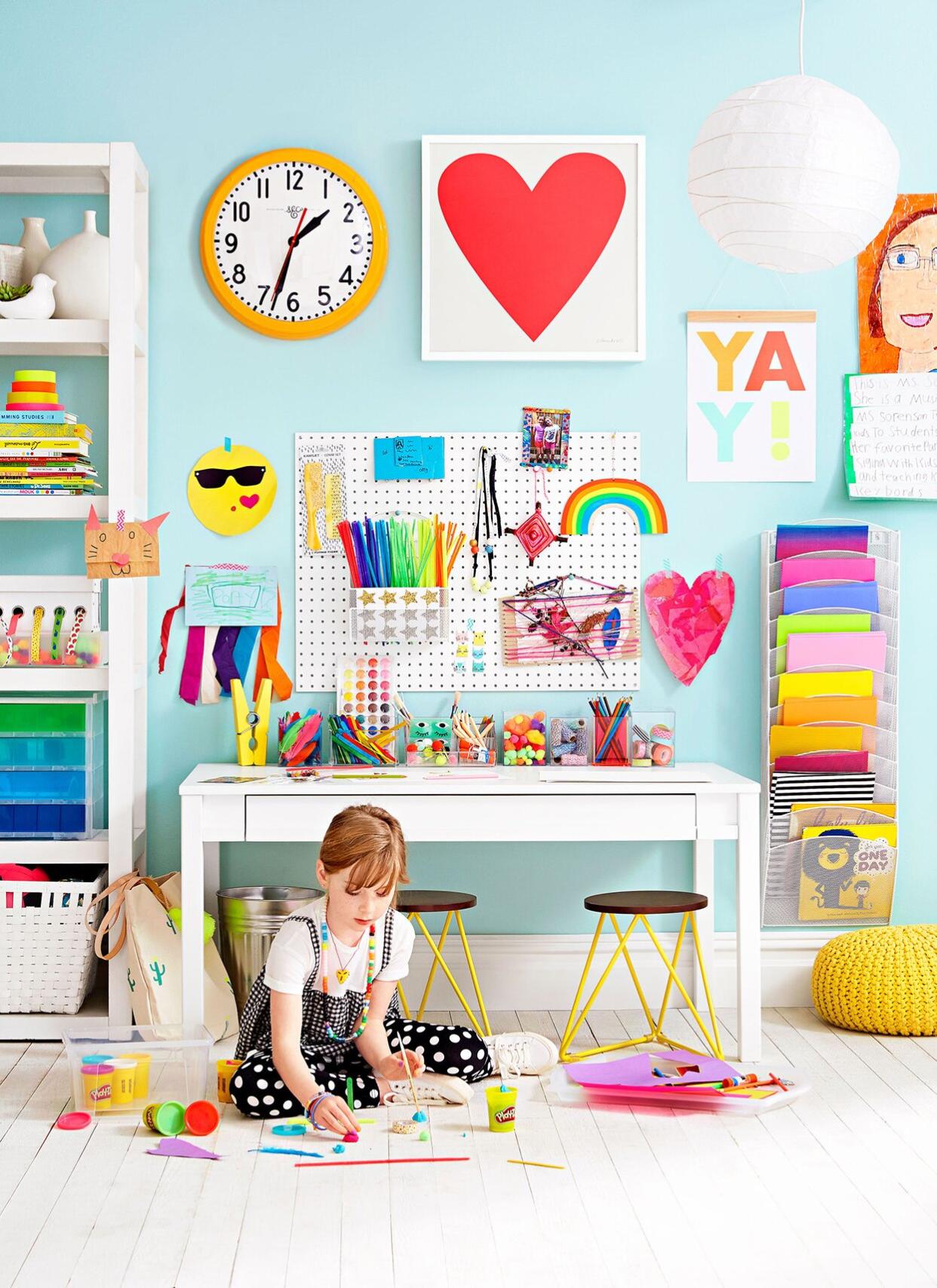5 Ways to Raise an Organized Child

Dane Tashina
What can you do now to make sure your future middle-schooler packs his cleats on game day, your teen turns in her algebra homework on time, or your college kid doesn't annoy his roommates by never doing his dishes? Surprisingly, you can help grow these types of organizational skills starting in infancy and reinforce them at every age. Use these tips from developmental and behavioral pediatrician Damon Korb, M.D., a dad of five and author of Raising an Organized Child.
Be consistent.
Kids thrive on routines, and consistency makes your job easier. It helps your baby learn about cause and effect: When she cries, you pick her up. Continue to set expectations as your child gets older. For example, tell your toddler that whenever she's near a swimming pool, Mom or Dad must always be with her. For your preschooler, keep the same dinner routine every night: Wash your hands, sit down, eat, take your plate to the sink. "Teens' hormones make them inherently inconsistent, so the rituals you set up now will offer familiarity later," says Dr. Korb.
Introduce order.
Your toddler or preschooler likely can't tell time, but you can help him understand the idea by using words like before, during, and after ("Your cousin will come over after lunch"). When you talk in terms of minutes or hours ("You can have a snack in five minutes"), be sure to follow through. "If it's really 20 minutes but you said five, you just confused his sense of time," explains Dr. Korb. Also teach him that activities have a beginning, a middle, and an end: You take out a toy, play with it, and put it away.
Give everything a place.
Designate zones in your home for eating, reading, and playing. Organize your child's toys in bins based on type (balls, dolls, cars) and labeled with words or pictures so she can tidy up on her own. You can also play "I spy" or look at a Where's Waldo? book together to teach her how to search for something that's tricky to find—a skill that'll come in handy when she's misplaced something in the future.
Practice forward thinking.
Kids who are good planners learn from their mistakes more easily because they can grasp the concept of expectations. Toddlers will start to learn what to anticipate when they begin talking. Test your child by asking, "How long do you think it'll take for us to get to Grandma's house? Will it take longer than singing 'Baby Shark'?" When your child is in preschool, encourage forward thinking by talking through your plans: "We're going to the beach. What should we take with us?" Your child may say, "A swimsuit!" You can reply, "And what will we need after we get out of the water?" He'll say, "A towel!"
Your school-age kid can pack his own lunch. You provide the healthy options, and he can decide what and how much to put in his bag. If he still felt hungry after lunch yesterday, he'll know to pack more today. If he's leaving out a certain type of food, approach the issue casually: "I see there's not a lot of veggies there. How can we get in more?"
Promote problem solving.
Creativity pushes kids to think of several possibilities, which will one day help them handle issues on their own. Ask a toddler or a preschooler realistic and big-thinking questions like, "What should we play?" or "How could you fly to the moon?" If she can't think of anything, let her get bored. That's when imagination really takes off.
As your child reaches age 5 or 6, she'll start to take in others' perspectives and understand what makes them happy. You can encourage this by saying, "Mila looks sad. Why do you think that is?" or "What would William like for his birthday?" Let her anticipate outcomes. She'll be a better problem solver if you don't always feed her the answers, says Dr. Korb.
RELATED: Conquer Clutter in 31 Days

